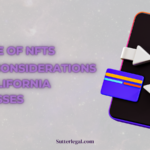Table of Contents
- What do you need to know about the Wage Claim?
- How to file a California wage claim
- In conclusion
- Need Help
Why do you need the Wage Claim?
When you are fired, let go, laid off, or otherwise terminated as an employee you have rights. It is important to speak with a knowledgeable California attorney as soon as possible to preserve your rights. First, here is a list of things you need to know.
What do you need to know about the Wage Claim?
- You are entitled to your final paycheck on the spot. Your employer has 72 hours to give you your final paycheck if you quit. However if you are fired, they are required to pay you on the spot, or otherwise deposit the funds into your account through payroll.
- Depending on the company policy you may be entitled to accrued vacation and/or sick leave, which is required to be paid when you are fired.
- You are not entitled to severance. Severance is not a right, but rather something that a lot of employers provide in exchange for an employee signing a waiver of liability. In other words, if you take a severance you will not have the right to sue your employer in exchange. In my opinion, you should consult with a California lawyer before you sign any agreement with your former employer. You may be waiving rights that entitle you to a large settlement or other amounts of money due.
- If your employer does not give you your final paycheck when you get fired/terminated you are entitled to “Running Time Penalties”. What does this mean? As a penalty to your former employer, if they don’t pay you, you are entitled to one day of pay for each day they are late. The penalties are capped at 30 days. For example, if you earn $400 per day, and your former employer fails to pay your final paycheck for 30 days, you will be entitled to $12,000 in penalties ($400 X 300 = $12,000) plus some interest. However there are some good faith exceptions, for example, the employer tried to pay you, but there was a glitch in the system. Or the employee intentionally fails to pick up their paycheck.
How to file a California wage claim
Step 1: Gather Information
Before filing a wage claim, you should gather as much information as possible about your employer and your wages. This includes:
- Your employer’s name, address, and phone number
- Your job title and description
- The dates you worked for the employer
- Your pay rate and hours worked
- Any overtime hours worked
- Any meal and rest break violations
- Any other wage violations
Step 2: Complete the Wage Claim Form
To file a wage claim, you will need to complete the DLSE Form 1 (Initial Report or Claim) or DLSE Form 55 (Notice of Claim and Conference). These forms can be obtained from the California Labor Commissioner’s Office or downloaded from their website.
The form will ask for information about your employer, your job, your wages, and the violations you are claiming. It is important to be as specific and detailed as possible when completing the form.
Step 3: File the Wage Claim Form
Once you have completed the form, you can file it with the California Labor Commissioner’s Office. You can file the form in person, by mail, or online. If you file the form in person or by mail, you should keep a copy of the form for your records.
Step 4: Attend the Conference
After you file the wage claim form, you will receive a notice of conference from the California Labor Commissioner’s Office. The conference is an opportunity for you and your employer to discuss the issues and try to resolve the dispute.
At the conference, a deputy labor commissioner will listen to both sides and try to reach a settlement. If a settlement is not reached, the deputy will schedule a hearing. At the hearing, both sides will present evidence and the deputy will make a decision.
Step 5: Follow Up
After the conference or hearing, the deputy will issue a decision. If the decision is in your favor, your employer will be ordered to pay the wages you are owed. If the decision is not in your favor, you may be able to appeal the decision.
In conclusion
if you believe that your employer has violated your wage rights, you may be able to file a wage claim with the California Labor Commissioner’s Office.
To file a wage claim, you should gather as much information as possible, complete the wage claim form, file the form with the Labor Commissioner’s Office, attend the conference, and follow up with the decision.
Need Help
What should you do if you are not paid?
First, you should talk with an experienced attorney so you can know your rights.
We offer a free consultation with an experienced attorney. We don’t play games, we will do what we can to help you enforce your rights. For a free consultation with an experienced attorney call or email.






